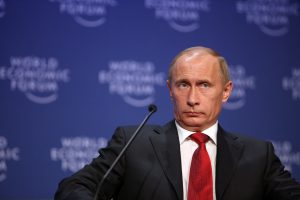I suppose I shouldn’t do this. I should rather applaud what has been done than lament that so much remains to be done, show the light at the end of the tunnel and not play Cassandra, but there is no worse crime in politics than a lie, even by way of omission.
So let’s say, loud and clear, that none of the immense steps now being taken guarantee anything, quite the contrary.
The European capitals have managed to overcome their differences by opening the door to the idea of Community loans and by agreeing not to impose any more conditions on support for the most vulnerable among them. In the blink of an eye, the 27 national governments agreed on Thursday to do what had been impossible thirty-six hours earlier and would not even have been conceivable just a month ago. The Commission had previously put the Maastricht criteria in brackets without any opposition from of the Member States, and that is still not all. The Union now authorises state support for companies in difficulty, thereby burying “free and undistorted” competition and has even embarked on the road to a social Europe by putting on the table no less than 100 billion euros in financial guarantees for national part-time employment schemes.
The Union’s taboos are falling as fast as dead leaves. That is no small thing. It is a great deal, but how can we fail to see that we have only yet managed to deal with the emergency, and in a disorderly way? We are meeting the most urgent needs, and that is all the better since we have not been far from failing to do so, but we can neither go into so much debt to save what cannot be saved, nor can we mutualise debts without mutualising the investments that will make it possible to cope with them tomorrow.
The urgent priority is to provide for the needs, whatever the cost, of our health systems and not to leave without income the tens of millions of workers, who are deprived of jobs in confinement. Humanity commands it as much as the economy, but should we, on the other hand, want to save, by instance, so many airline companies, shipyards or automobile industries whose necessity and chances of survival are at least questionable?
Pandemic or not, car sales will inexorably decline as urban dwellers, the growing and richest part of mankind increasingly abandon individual and polluting vehicles in favour of bicycles or public transport. Cruise ships, those buildings on the water, will obviously not recover from the tragedy that so many of their passengers have just experienced, contaminated in a closed chamber and prevented from docking for fear that the virus will land with them. Even more than cruises, it is mass tourism which has just suffered a blow because, already denounced for the damage it causes in Venice or elsewhere, it will suffer from an inevitable fall in the standard of living and the trauma experienced by so many forgotten travellers all over the world as a result of the closure of airports. As for the airlines, they will have to cope at the same time with the spread of teleworking and the decline in organised travel, and with a fall in tourist and business traffic which is condemning many of them to bankruptcy and forcing them all to consider mergers.
The Member States of the Union are thus jointly and severally committing themselves to expenditure aimed at trying in vain to save the companies of the past rather than investing jointly in the activities of the future, those that will ensure employment and living standards.
Tomorrow, we will need to densify public transport networks; to develop a Europe of rail and night trains; to recreate employment by relocating a number of labour-intensive industries and not just high-tech ones; to nationalise pharmaceuticals rather than the car industry; to create European research centres on real campuses of Excellence; to finance the transition to the green economy; and to lay the foundations for a European defence capability, since the future of the American defensive umbrella is less certain than ever.
This is what we must pool and share: tomorrow’s investments and not yesterday’s debts, because it is on the foundations of the 21st century and not in the memory of the 20th century that Europe’s power and prosperity will be consolidated and rebuilt. The United States, China and the European Union are the three great powers of today, but ours, Europe, has neither public power nor an industrial strategy.


